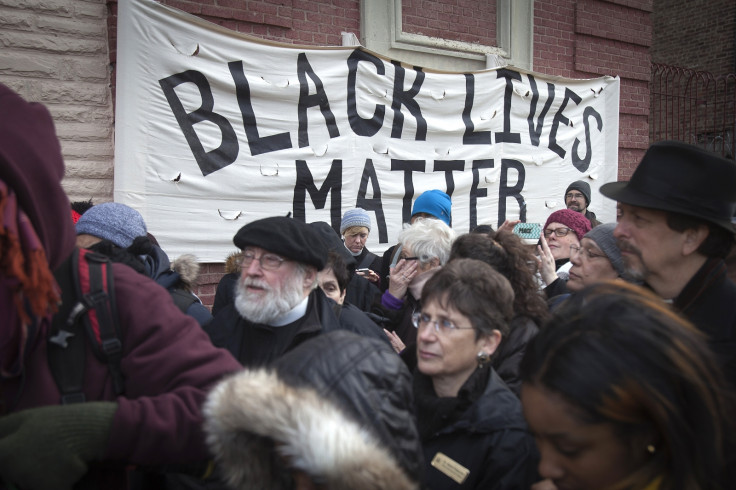Winsconsin: Fatal police shooting of black teen Tony Robinson sparks protests
More than 100 demonstrators protested against the fatal police shooting of black teenager.

More than 100 demonstrators took to the streets in Wisconsin to protest against the fatal shooting by police of an apparently unarmed black teenager.
Mike Koval, the police chief in Madison, Wisconsin, said the 19-year-old was shot dead in a struggle with police on Friday 6 March.
Police have not released any details about the officer involved.
The dead man was named as Tony Robinson by his family.
"My son has never been a violent person, never. And to die in such a violent, violent way, it baffles me," Andrea Irwin, Robinson's mother told ABC News.
"My son is now another statistic of the things that are happening all over the United States. Another black kid shot by the police for no reason.
"This has got to stop."
Koval said police were called to an incident of a man walking in and out of traffic. A police officer later entered an apartment where the 19-year-old had gone into.
During a struggle between the two, the teenager was fatally shot, according to broadcaster WKOW.
The officer administered CPR, and the wounded man was taken to hospital where he died.
Videos published on social media showed around 100 demonstrators at the scene of the shooting in Madison, shouting slogans: "Who can you trust? Not the police."
Robinson's family said police denied them access to see his body.
#Selma50 #BlackLivesMatter #TonyRobinson pic.twitter.com/MfvXMV47KQ
— Patti Alcamo (@HolisticMediato) March 8, 2015
"They won't let us come near him," Sharon Irwin, Robinson's grandmother, told a crowd who had gathered Friday night after the incident. "I just want to hold him and tell him it's OK. Go home to God. They told me he was evidence."
The city's mayor, Paul Soglin, told the Wisconsin Journal there would be an investigation into the shooting.
"It's a tragedy beyond description," Soglin said. "I expect there will be a lot of anger and frustrations."
The shooting occurred just hours before President Obama is due to address a rally in Selma, Alabama, on Saturday 7 March, to mark the anniversary of the Selma protests which became a rallying point for the 1960s Civil Rights Movement.
"Selma is not just about commemorating the past," Obama said before his visit. "It's about honouring the legends who helped change this country through your actions today, in the here and now."
© Copyright IBTimes 2025. All rights reserved.




















